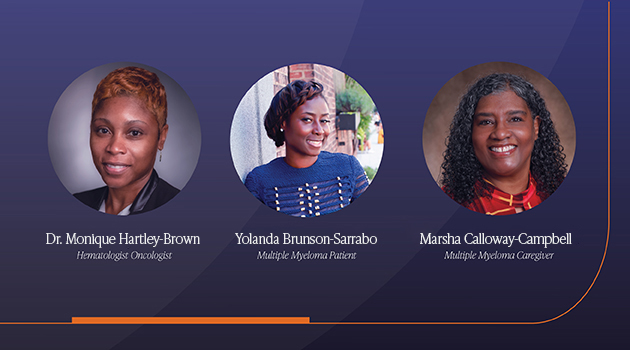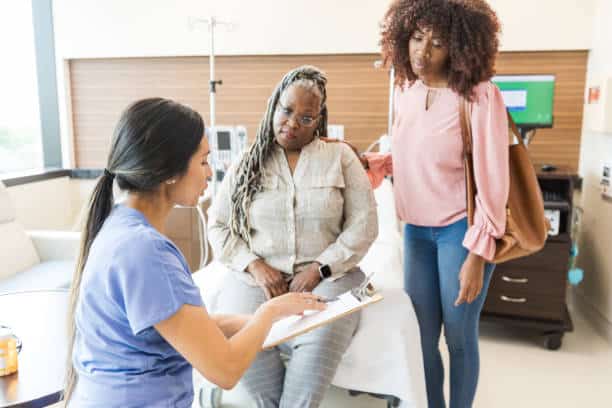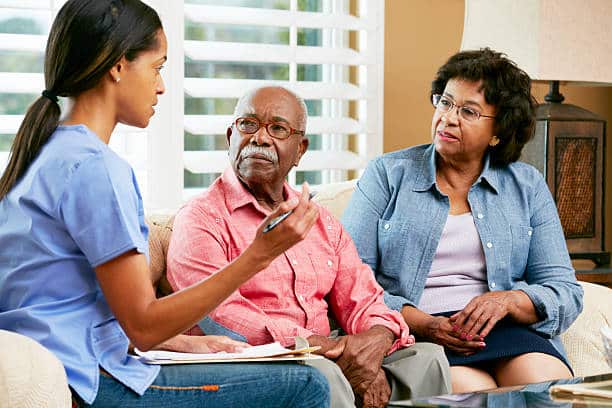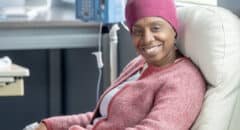
Sponsored by Johnson & Johnson
In the crowded conversation about health disparities within the Black community, there’s an urgent topic that deserves attention: multiple myeloma. This rare, incurable blood cancer forms in plasma cells, a type of blood cell that is critical to fighting infections. Each year, approximately 35,000 people are diagnosed with multiple myeloma in the United States, and about 20% of all cases occur in Black people, disproportionately impacting the community with double the mortality rate occurring in Black patients compared to white patients. This disparity is largely attributed to delayed diagnoses and inequitable access to the arsenal of treatment options, along with a complex relationship toward the healthcare system.
For most cancers, the Black community has the highest death rate and shortest survival rate of any racial or ethnic group in the United States. In an effort to eliminate these disparities, the FDA Oncology Center of Excellence created National Black Family Cancer Awareness Week (June 13–19). The theme, “Engaging the Generations,” emphasizes the role families can play in cancer diagnosis and throughout the treatment continuum, encouraging candid conversations along the way.
Johnson & Johnson is encouraging more of these conversations through That’s My Word ™, a program created to help uncover and address healthcare disparities the Black community continues to face in multiple myeloma. While everyone’s journey is unique, there are many shared experiences within the Black community. A healthcare professional, patient, and care partner share their personal perspectives, while emphasizing how proactive health conversations with family and their community can truly make a difference.

Monique Hartley-Brown, MD, MMSc, hematologist oncologist, not only specializes in treating multiple myeloma patients, but was also her mother’s care partner. “It affected me personally when my mother was diagnosed, and I saw firsthand the barriers she faced to get the healthcare she needed,” said Dr. Hartley-Brown. “By the time she was diagnosed, she was already in renal failure.” Dr. Hartley-Brown is vocal on social media about the current disparities. As a physician treating Black multiple myeloma patients, she understands the importance of navigating the healthcare system effectively, including the power of patients understanding their disease and treatment options, and the role of having a supportive care team.
Like Dr. Hartley-Brown, Marsha, a care partner to her husband, experienced the effects of a delayed diagnosis. “My husband was 57 years old and had some of the more common symptoms like back and bone pain, but no one mentioned multiple myeloma — one doctor even thought it was arthritis,” said Marsha. Being diagnosed with multiple myeloma can cause a lot of uncertainty, and for many it can be overwhelming to know what questions to ask, or where to find information. Over time, through the dedicated support from healthcare professionals, connecting with a community of fellow patients, or the help of a care partner like Marsha, multiple myeloma patients can better navigate care.

Health conversations might not always be comfortable, but when it comes to multiple myeloma, these discussions are pivotal. It’s about passing down more than just stories and heirlooms — it’s about sharing knowledge and empowering future generations with the information they need. By engaging in these discussions early and often, we can help mitigate the disparities faced by Black communities.
Yolanda, an author, host of “The Myeloma Team” podcast, and patient advocate, stresses the importance of proactivity. “I knew I needed to identify who would be alongside me, from my family to my care team,” said Yolanda. When Yolanda first told her mother about her diagnosis, she was shocked. “It was difficult to explain my condition because I was still trying to understand it myself.” Yolanda found people like her, living with multiple myeloma, who she could ask questions of in order to understand their unique experience as a Black patient.
While it’s important to have health conversations post diagnosis, it’s just as imperative to have them with family beforehand. “Prior to my husband’s diagnosis, we didn’t have many conversations about our family’s medical history,” said Marsha. “Afterward, those conversations happened much more frequently with my three adult daughters.”
Yolanda has taken on the responsibility of discussing her family’s health history so they know the risks. “You have to open the door and have those conversations,” Yolanda says. “If we don’t fight for ourselves, who else is going to fight for us as hard?”

Having a support network is imperative: it can be found in family, neighbors, church friends, or other patients, and can help patients in their journey. Discussing health concerns can be challenging, but when these conversations happen, they can build community. Marsha found support from unexpected places. “Shortly after my husband’s diagnosis, I received a text from a sorority sister who is a healthcare professional, asking why he was on her patient list,” said Marsha. “It opened the door to conversation, and she has been by our side since day one.”
Yolanda has built a community through her YouTube series, No Better Time Than the Present, where she connects with other people living with multiple myeloma. (*Johnson & Johnson is not a sponsor of No Better Time Than the Present or affiliated with this YouTube channel.)
Everyone has an important role to play in increasing health conversations among a community. Dr. Hartley-Brown, Marsha, and Yolanda have all made their Multiple Myeloma promise in hopes of inspiring others to do the same.
- “I promise to continue to provide equitable care to ALL patients.” – Dr. Hartley-Brown
- “I promise to dedicate my time promoting health equity in the myeloma space, actively increasing awareness and education in our Black communities, and promoting self-advocacy.” – Marsha
- “I promise to move the needle and let people with multiple myeloma know that you can still live your life with this diagnosis.” – Yolanda
Visit ThatsMyWordMM.com for more information on multiple myeloma, available resources, and how you and your family can join the community in making a promise to have an informed conversation with your loved ones about their health.
cp-449126v1









